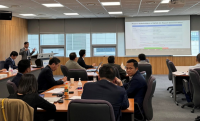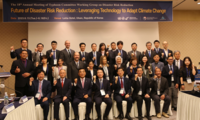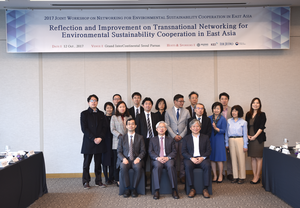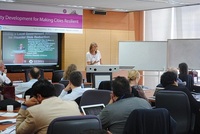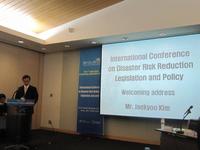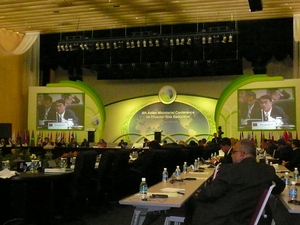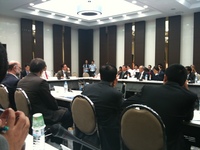25-28 June 2024 (Seoul, Republic of Korea )
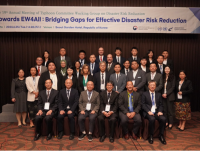 This year's annual meeting of the Typhoon Committee's Working Group on Disaster Risk Reduction (WGDRR) was held on 25-28 June 2024 in Seoul, Republic of Korea on the theme "EW4All: Bridging Gaps for Effective Disaster Risk Reduction." ADRC participated in this event on behalf of the Cabinet Office Japan with the following contributions and outcomes:
This year's annual meeting of the Typhoon Committee's Working Group on Disaster Risk Reduction (WGDRR) was held on 25-28 June 2024 in Seoul, Republic of Korea on the theme "EW4All: Bridging Gaps for Effective Disaster Risk Reduction." ADRC participated in this event on behalf of the Cabinet Office Japan with the following contributions and outcomes:
1) Presented Japan's member report highlighting the milestones on disaster risk reduction (DRR) activities implemented by ADRC in 2023 (e.g., GLIDE, Sentinel Asia, QZSS, training, webinars, ACDR, website, and other information-sharing activities)
2) Announced the host, theme, dates, and venue of the next Asian Conference on Disaster Reduction (ACDR2024) to the members of the WGDRR
3) Noted the key technical presentations related to the theme of ACDR2024, particularly the "Urban inundation response technology using deep learning and sensor data" by the National Disaster Management Research Institute (NDMI)/Republic of Korea and the "Role of Impact-Based Forecasting in Early Warnings for All initiative" by United Nations Economic and Social Commission for Asia and the Pacific (UN-ESCAP)
4) Affirmed a continuing collaboration with WGDRR in information sharing through GLIDE, the website, and online databases to be reflected in the working group's Annual Operations Plans (AOPs)
5) Discussed with the participant from Vietnam regarding ADRC's engagement in the forthcoming APEC Vietnam Online Workshop on "Improving the Resilience of Vulnerable Coastal Communities to Climate Change," 24-25 July 2024.
The WGDRR is one of the working groups under the UN-ESCAP/World Meteorological Organization (WMO) Typhoon Committee, comprising 14 members (i.e., 12 countries and 2 regions) in Asia-Pacific region.
(2024/07/05 15:00)


